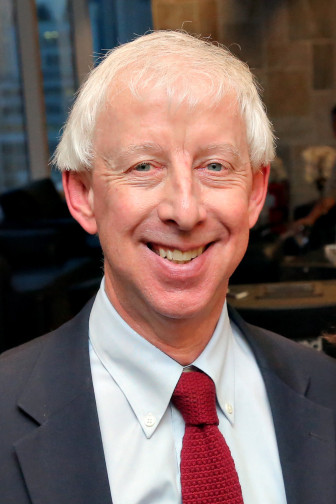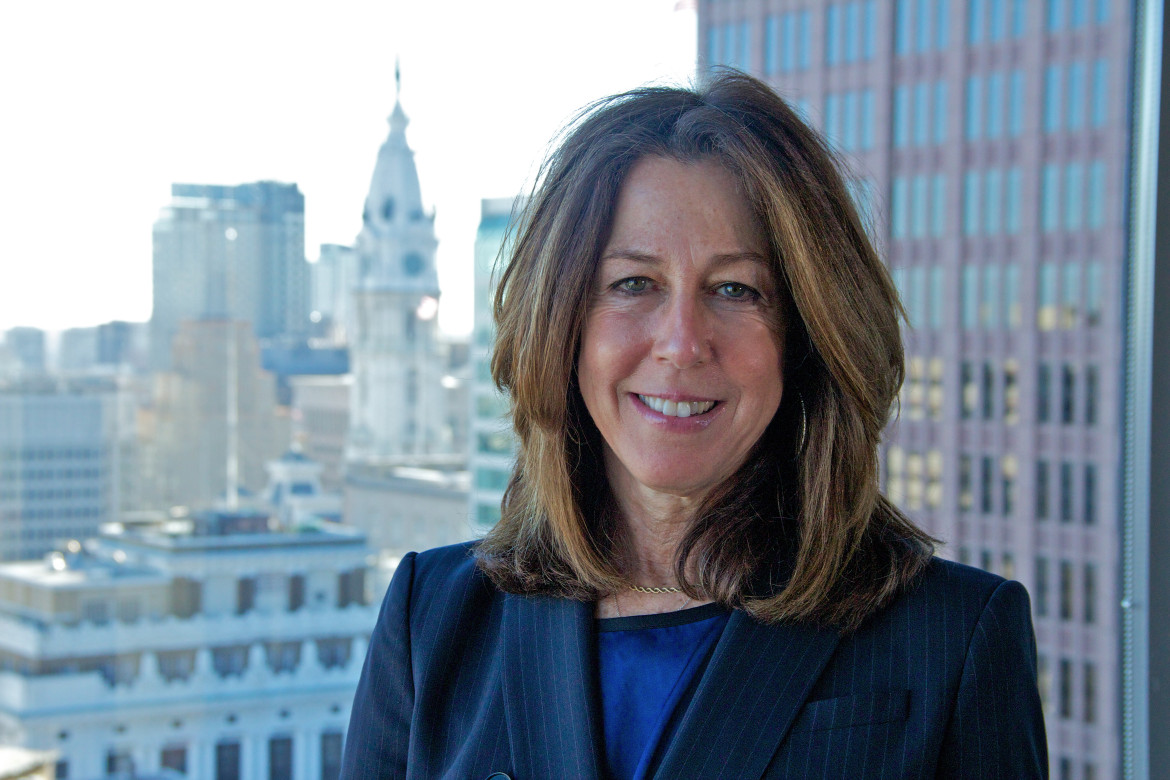PHILADELPHIA — In 1975, four newly minted Temple University Law School graduates set up shop in a cardiologist’s office in Philadelphia, lugging in their electric typewriters and using an X-ray machine for a desk.
Bolstered by the heady optimism of the civil rights movement, coupled with the end of the Vietnam War, they quickly became one of the only firms in the United States to represent society’s most vulnerable.
Just eight years earlier, the U.S. Supreme Court had ruled In re Gault that youth in the juvenile justice system were entitled to many of the same rights given to adults accused of crimes, including the right to an attorney and the right to a fair trial that required proof beyond a reasonable doubt.
“We had no money. We were trying to patch things together to create this very fledgling organization,” remembered Marsha Levick, one of the co-founders of what became the Juvenile Law Center.
This year, the center celebrates its 40th anniversary and the retirement of longtime executive director and center co-founder Bob Schwartz. Schwartz and Levick took time in late July to discuss the agency's evolution from a grassroots firm representing individual juveniles locally to a national leader in juvenile justice reform.

Co-founder Bob Schwartz
As the one of the oldest, nonprofit public interest law firm for children in the nation, the center receives funding from the Annie E. Casey Foundation, Public Welfare Foundation and Ford Foundation, among others.
Early on, Levick and her colleagues represented children who requested a say in parental custody battles. They argued on behalf of youth petitioning for name changes and runaway victims of child abuse. They fought for better health care access for foster children and improved basic and special education for school-age offenders serving in adult county jails.
“In 1975, we were the only game in town,” Schwartz recalled. “It turned out that there was a huge need and we tapped into it.”
That need emboldened the center to work on a national level to protect and advance children’s rights in courts, legislatures and executive agencies. Staffers deploy an arsenal of strategies, including litigation, appellate advocacy, submission of amicus (friend of the court) briefs, policy reform and public outreach.
The center’s advocacy has contributed to several landmark Supreme Court rulings, such as banning the death penalty for crimes committed by juveniles under age 18 (Roper v. Simmons, 2005); eliminating juvenile life without parole sentences in nonhomicide cases (Graham v. Florida, 2010), and, later, barring mandatory juvenile life without parole in homicide cases (Miller v. Alabama, 2012); and making age a relevant factor in determining police custody for Miranda rights (J.D.B. v. North Carolina, 2011).
The center also played a key role in exposing the 2008 Luzerne County Court, Pa., “kids-for-cash” scandal in which judges accepted kickbacks from developers of for-profit juvenile detention centers. The judges handed down harsh sentences to thousands of children, many of whom were first-time offenders who appeared without legal representation. The judges themselves were sentenced for racketeering.
[Related: The Kids for Cash Scandal | Bokeh]
Levick, the center’s deputy director and chief counsel, cites several setbacks on the road to establishing robust and meaningful rights for juveniles.
In 1984, the Supreme Court ruled in Schall v. Martin that it was constitutional to detain juveniles before trial as a potential crime deterrent.
The decision “really put some brakes on trying to develop more formal due process procedures and protections,” Levick said.
When juvenile crime rates rose in the late 1980s and early 1990s, states responded by moving youth from juvenile to adult criminal courts, imposing harsher sentences.
The Juvenile Law Center, in turn, worked to divert youth into evidence-based treatment and other adjudication alternatives to encourage healthy development.
A sentence of life without parole negates the possibility that youth can mature and reform their ways, Levick said.
More recently, the field of developmental psychology has enriched state and court perspectives on juvenile crime. Research shows that juveniles lack impulse control and are more vulnerable to negative peer influences.
More reforms are needed, according to Levick and Schwartz. Too many juveniles continue to be incarcerated, tried as adults and sent to solitary confinement. Funding is limited for indigent juvenile clients.
“We’ve made strides but it’s not over yet,” Schwartz said.
“Most states do a terrible job in sealing and expunging juvenile records,” he continued, making it hard for juvenile offenders to get a job, serve in the military or receive financial aid for college.
The center continues to press for restrictions on shackling juveniles in the courtroom and to challenge lifetime sex offender registration for juveniles. Last year, the Pennsylvania Supreme Court ruled that the state’s sex offender registration law was unconstitutional for juvenile offenders.
As the center’s leadership changes, it is expected to remain at the forefront of juvenile justice movement.
Schwartz, 65, plans to remain active as a legal consultant following his retirement. Susan Vivian Mangold, a law professor at SUNY (State University of New York) Buffalo Law School and previous center fellow, will replace him as executive director on Oct. 14.
A recipient of the Pennsylvania Bar Association’s Child Advocate of the Year Award and the American Bar Association’s Livingston Hall Award, Schwartz has managed the center since 1982.
He plans to write a memoir on the genesis of the center, back when he had to umpire baseball games and write briefs for other attorneys to eke out a living.
“What we shared was a commitment to civil and individual rights,” added Levick, 64. “We had no sense that it would become what it is today.”
More stories related to this one:
A Plot with a Scandal: A Closer Look at ‘Kids for Cash’ Documentary
States Are Failing to Protect Juvenile Records, Study Shows
New Campaign Seeks to Sharply Reduce Youth Incarceration
Opinion: Juvenile Justice — One Strike and You’re Out!
Juvenile Records Often Have Lifelong Consequences: Experts Say

Maybe this might she’d some perspective.. So I’m a 23 year old male. 11 years ago when I was 12 I committed a crime. I sexually abused a foster relative of mines on 1 occasion. The relative would have been 8 at the time of the crime. It wasn’t until I was 15 years of age that I was arrested for the crime and sent to a juvenile sex offenders treatment facility. After being there and working on my issues I was discharged to another youth facility to further work on my issues. At the point I was in a less intense environment being able to interact with the public. After another year there since I had no family to go to I was sent to another group home facility for young men. The home held guys who were previously arrested for any type offense you can think of. They allowed you to work in the public, McDonald’s being my first job, and allowed you to pursue a highschool diploma or GED. I achieved my GED and even was able to enroll in a trade school for medical assisting. After meeting the requirements set by my counselors, probation officer, and judge i was “set free” to the public. I managed to get an apartment, get a second job at a shoe store, and finish school. I graduated school with a 3.5 gpa and was hired a dr’s office in which I’ve been at for 3 years now. I had full intentions on going back to school for nursing but I am not able to due to my juvenile record. Now tell me, am I not worthy of a real chance. Should I not be able to feel what freedom feels like? Have I not done enough to re-write my wrongs? I have not re offended or gotten in any trouble since the sexual offense. So for people who think people don’t change or can’t change, well I’m living proof..
I have not received a bill for the dinner for judge moss and me.
I look forward to Bob’s book. There is so much to tell about the development of this law firm. it’s two amazing co-founders and all they have accomplished,
All my best, Bob, on your retirement. And congratulations to the new ED, Susan Vivian Mangold .
Myra Levick